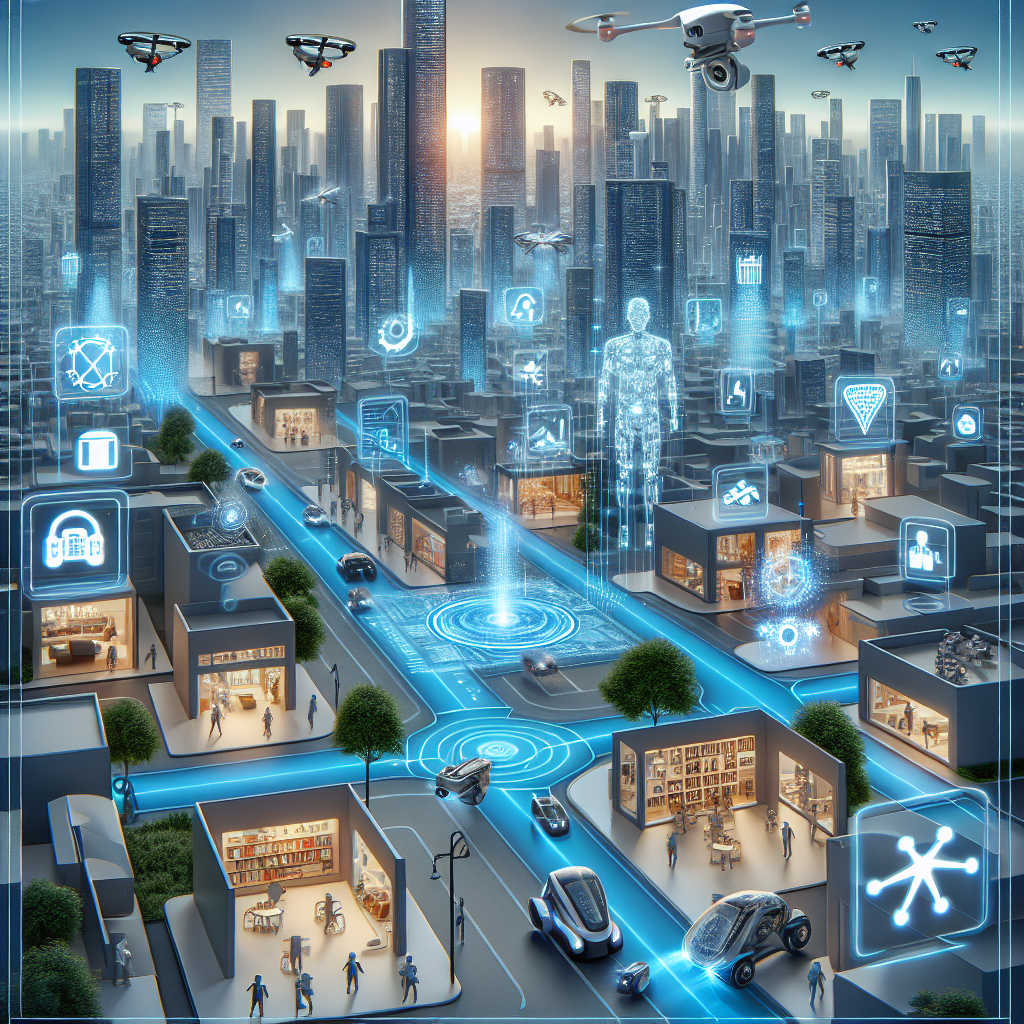The Future is Here: Exploring the Potential of AGI in Everyday Life
Artificial General Intelligence (AGI) has long been a topic of fascination and speculation in the field of artificial intelligence. AGI refers to machines that possess general intelligence, similar to that of a human being, allowing them to learn, reason, and solve problems across a wide range of tasks. While current AI systems excel at specific tasks, such as image recognition or natural language processing, they lack the general intelligence required to perform a wide variety of tasks with the same level of skill and flexibility as a human.
However, recent advancements in AI research have brought us closer to the realization of AGI. With the development of deep learning algorithms, neural networks, and advancements in computer processing power, researchers are now closer than ever to creating machines that can think and learn like humans. The potential applications of AGI are vast and varied, with the potential to revolutionize industries ranging from healthcare to transportation to entertainment.
In this article, we will explore the potential of AGI in everyday life, examining how this technology could transform the way we live, work, and interact with the world around us. We will also address some common questions and concerns about AGI and its implications for society.
The Potential of AGI in Everyday Life
The potential applications of AGI in everyday life are virtually limitless. From household chores to complex decision-making processes, AGI has the potential to revolutionize the way we live and work. Here are just a few examples of how AGI could impact various aspects of daily life:
1. Healthcare: AGI could revolutionize the field of healthcare by assisting doctors in diagnosing diseases, analyzing medical images, and developing personalized treatment plans for patients. With the ability to process vast amounts of data and learn from past cases, AGI could help improve patient outcomes and reduce healthcare costs.
2. Transportation: AGI could transform the way we travel by enabling autonomous vehicles to navigate complex roadways, predict traffic patterns, and avoid accidents. With the ability to learn and adapt to changing conditions, AGI-powered vehicles could make transportation safer, more efficient, and more convenient for passengers.
3. Education: AGI could revolutionize the way we learn by personalizing educational materials, adapting to each student’s individual learning style, and providing real-time feedback and support. By tailoring educational experiences to the needs of each student, AGI could help improve student performance and engagement in the classroom.
4. Entertainment: AGI could enhance the entertainment industry by creating more immersive and interactive experiences for audiences. From personalized movie recommendations to AI-powered video games, AGI could revolutionize the way we consume and interact with media.
5. Home Automation: AGI could streamline household chores and tasks by managing smart home devices, optimizing energy usage, and anticipating the needs of residents. With the ability to learn and adapt to the preferences of each household member, AGI could make daily life more convenient and efficient.
These are just a few examples of how AGI could transform everyday life. As researchers continue to make advancements in AI technology, the possibilities for AGI applications will only continue to expand.
Common Questions and Concerns About AGI
As with any emerging technology, AGI raises a number of questions and concerns about its potential impact on society. Here are some common questions and concerns about AGI, along with responses to address them:
1. Will AGI replace human jobs?
One of the primary concerns about AGI is the potential impact on employment. As machines become increasingly capable of performing tasks that were once reserved for humans, there is a fear that AGI could lead to widespread job displacement. While it is true that some jobs may be automated by AGI, new opportunities for employment are also likely to emerge as a result of this technology. By working alongside AGI systems, humans can focus on tasks that require creativity, critical thinking, and emotional intelligence, areas where machines still struggle to excel.
2. Is AGI ethical?
Another concern about AGI is the ethical implications of creating machines with human-like intelligence. Questions about the rights and responsibilities of AGI systems, as well as the potential for misuse or manipulation of this technology, are important considerations for researchers and policymakers. It is essential to establish clear guidelines and regulations for the development and deployment of AGI to ensure that this technology is used responsibly and ethically.
3. Can AGI be controlled?
One of the biggest concerns about AGI is the potential for machines to surpass human intelligence and develop their own goals and motivations. This scenario, known as the “singularity,” raises questions about the ability to control and regulate AGI systems once they reach a certain level of intelligence. Researchers are actively exploring ways to design AGI systems with built-in safeguards and control mechanisms to ensure that they remain aligned with human values and goals.
4. What are the risks of AGI?
While the potential benefits of AGI are vast, there are also risks associated with this technology. From concerns about privacy and data security to the potential for AGI to be used for malicious purposes, it is essential to consider the potential risks and challenges of AGI as we continue to develop and deploy this technology. By addressing these risks proactively and implementing safeguards to mitigate potential harms, we can ensure that AGI is used responsibly and ethically.
In conclusion, AGI has the potential to revolutionize everyday life in ways we have only begun to imagine. From healthcare to transportation to education, the possibilities for AGI applications are vast and varied. While there are legitimate concerns and questions about the implications of AGI for society, it is essential to approach this technology with a thoughtful and informed perspective. By addressing these concerns and working collaboratively to develop and deploy AGI responsibly, we can harness the full potential of this technology to improve the quality of life for people around the world.

